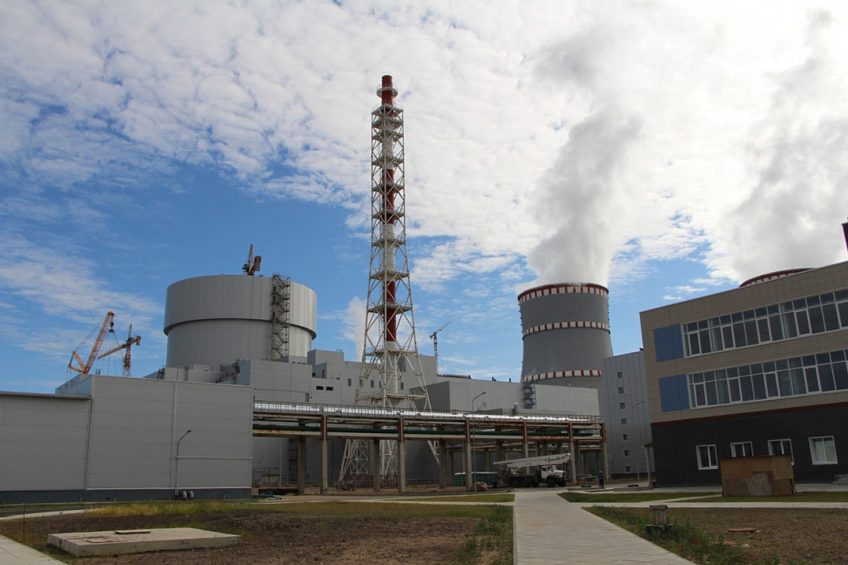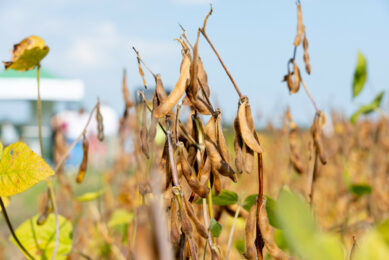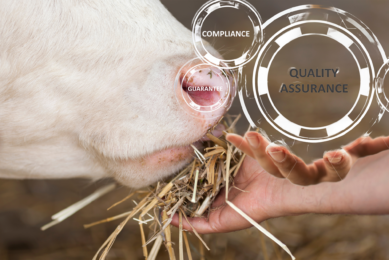Russia mulls plans to use radiation on agricultural products

Russian state-owned nuclear corporation Rosatom promotes ionising radiation as a rather new method for killing pathogens, pests, and fungi in agricultural production, including in feed.
This technology may provide an answer to the many problems the feed industry has to deal with. But environmentalists are still not entirely convinced it is safe for mass application. According to information from Rosatom subsidiary Rusatom Healthcare.
Fear of nuclear technology is an obstacle
Under the proposed treatment technology, the products are placed exposed for a limited time to radiation by a radioactive isotope, for example, Cobalt 60. This belongs to a class of synthetic radioactive isotopes, which means it can only be produced artificially in nuclear reactors. Speaking to the Russian press a few years ago, Dmitry Teplyakov, marketing manager of Rusatom Healthcare, claimed that, although the technology proved to be safe and promising, widespread fear of nuclear technology appeared to be a major obstacle on the way to fully fledged commercialisation.
Use of ionising radiation backed by IAEA
Using ionising radiation in the agricultural industry is backed by the International Atomic Energy Agency (IAEA). This organisation has acknowledged the technology as safe for disinfection and insect disinfestation of crops.
Studies show no harm to agri-products
According to Rosatom, none of the studies so far have shown that the agricultural products that undergone radioactive exposure could in any way be dangerous. Rosatom has carried out studies that bolster its statements on the technology’s efficiency.
In 2011, an experiment in the Tatarstan Republic showed that pre-sowing treatment led to a 17% to 23% hike in wheat harvest, a 11% to 12.4% increase in barley production, and a 21% to 27% boost in corn production, as compared to the parameters of the control group.
Rosatom executives have also repeatedly dismissed rumours that food products treated with radiation may lose their taste or odour, or change their appearance.

Use of radiation on agricultural products worldwide
Rosatom has already signed preliminary agreements to build commercial irradiation centres outside Russia. In 2018, Rusatom Healthcare and A Brown Company Inc. signed a project development agreement for constructing a network of irradiation centres in the Philippines.
The technology we offer to our Philippine partners is based on more than 70 years of experience in the nuclear field, and we hope it will contribute to the sustainable development of the Philippines.” – Denis Cherednichenko, CEO of Rusatom Healthcare, following the signing ceremony.
Turnkey solution in radiation technologies
Rusatom Healthcare offers a turnkey solution in radiation technologies, which includes the design and construction of the irradiation centres, equipment manufacturing and delivery, training of personnel, and commissioning of the facility.
In 2016, Rosatom signed a bilateral agreement for cooperation in the development of a network of integrated infrastructure irradiation centres with the Indian Agricultural Association, Hindustan Agro Co-Op Ltd. In total, at least 7 centres were planned to be built.
“The use of irradiation will make it possible to reduce grain losses from 15% to 3-5% per year,” -Cherednichenko said after the signing ceremony.
Globally 1 million tonnes of food is sterilised with radiation
According to Food Irradiation Global Market Outlook, nearly 1 million tonnes of food is sterilised with radiation globally. Sterilised foods are in high demand in hospitals, particularly for AIDS and chemotherapy patients. However, in most cases X-rays, not radioactive isotopes are used, which is believed to be less efficient. However, Rosatom has not reported on any significant progress on building foreign irradiation centres during the past few years. The nuclear corporation declined to comment on the current status of these projects.
Treatment may become mandatory
Rosatom has always emphasised that it offered on the global market only the technologies that had been proved safe and effective in Russia. However, Russian environmentalists are protesting against the plans recently made to employ low dosage radioactive treatment of food and agricultural products.
“In 2019, an irradiation centre was opened in the city Obninsk in Kaluga Oblast. There are plans to build 3 more irradiation centres [in Russia],” commented Albert Garapov, chairman of the Antinuclear Society of Tatarstan, where the country’s first experiments involving the use of radiation for agricultural products were carried out. “Moreover, the State Duma (the lower chamber of the Russian Parliament) registered the bill, which already passed the first reading, under which all products are proposed to be subjected to mandatory ion radiation treatment,” Garapov said. “Lobbyists for this radiation law swung at the monopoly so that there were practically no products that were not exposed to radiation. They just want to remove competitors, understanding perfectly well that more or less literate people will choose non-irradiated foods. The environmental community is, of course, against this,” he added.
There are risks of unexplored consequences, as substantial doses are needed to kill bacteria…
Radiotoxins cause concerns
According to environmentalists, the experiments of using radiation to treat agricultural products have already led to some bad things in the past. “After the collapse of the USSR, the United States had to finance projects designed to find and safely store sources of agricultural radiation in Georgia and Moldova,” commented Andrey Ozharovsky, a specialist at the Russian environmental non-governmental organization the Nuclear Waste Safety Programme. “Radiation treatment produces radiotoxins – substances formed in the irradiated organism that can lead to radiation injuries. As the experiments conducted in the USSR showed, the consumption of food products exposed to radiation leads to serious illness and affects many generations,” Garapov said.”There are risks of unexplored consequences, as substantial doses are needed to kill bacteria, and this can lead to undesirable changes in seeds and agricultural products,” Ozharovsky said.











